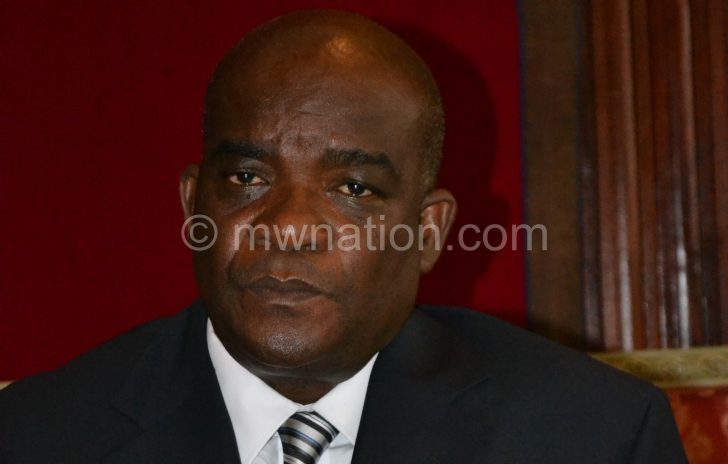Admarc chokes under K37bn debt
State produce trader Agricultural Development and Marketing Corporation (Admarc) is choked with a K37 billion debt amid failure to roll out the much touted Public Sector Reforms, it has been learnt.
In her presentation to stakeholders at the on-going week-long Sectoral Conference on the Implementation of the Public Sector Reforms in Lilongwe yesterday, Admarc acting chief executive officer Margaret Roka-Mauwa said her organisation depends on borrowing for commercial purposes, but cannot borrow anymore with the unpaid loans.

She said through its social obligation, Admarc has been selling maize at almost give-away prices, a development that has thrown it into the financial mess it is in.
Said Roka-Mauwa: “The maize [bought using borrowed funds from commercial banks] has not been selling due to free food distribution issued to people, as such, Admarc is still owing the banks huge loans.
“Interest charges are increasing and the loan has increased from K27 billion to K37 billion with interest charges of about K8 billion. In the circumstances, we cannot go back to borrow for commercial purposes.”
She said Admarc is hugely operating at a loss because of the social aspect which cannot be ignored as Malawians traditionally expect the agency to serve all corners of the country providing food, mostly the staple grain—maize, to everyone.

Roka-Mauwa attributed the situation to government’s failure to fulfil its obligations based on a memorandum of understanding (MoU) between Admarc and government.
Currently, Admarc operates 700 markets and nine major depots nationwide. Out of the markets, 205 are classified as uneconomic.
Under the MoU arrangement, government is supposed to reimburse Admarc the cost of running the markets. However, this has not been happening to date.
In the Public Sector Reforms, Admarc’s approved reform areas include commercial functions, social functions, financing and infrastructure.
Further, Admarc fails to tick because it is compelled to abide by the government-set minimum prices for produce, a development which in turn negatively affects the expected benefits, according to the presentation which also mentioned power interruptions, especially during the day, as slowing down its returns.
Roka-Mauwa said her institution is committed to undertaking and implementing the reforms. She said Admarc staff are positive and willing to make the organisation more commercially-oriented.

In her assessment of Admarc’s implementation of the reforms, Office of the President and Cabinet (OPC) Public Sector Reforms Unit chief director Seodi White said Admarc was failing to roll out its reform areas due to its institutional set-up.
In her presentation, she said: “The reforms at Admarc are not working. It is nothing to do with the organisation, but the institutional set-up. There is need for Admarc to be restructured and engage business masters to help in various areas if the reforms are to work.”
White’s negative assessment of the reforms at Admarc was in sharp contrast to what Chief Secretary to the Government Lloyd Muhara said at the opening of the conference on Monday. Muhara painted a rosy picture, stating that the success rate stood at 85 percent.
He said: “In summary, we have achieved 85 percent of what we intended to achieve. It is pleasing that the reforms have been well embraced by the entire public service and now we can see that no one wants to be left behind.”
Government’s rating of the reforms as a success come against the background of an investigative story by The Nation on July 28 this year which found that the programme had lost momentum six months after the initiative was moved to the OPC from the direct supervision of its political champion, Vice-President Saulos Chilima.
The Nation’s interviews with multiple sources—including local government councils, OPC and MDAs—showed little contact between the reforms unit at the OPC and implementing agencies.
Public officers interviewed decried the lack of direction and guidance from the reforms unit unlike when the initiative was under the Office of the Vice-President.
In its exit report, the Chilima commission recommended that the President should relaunch the Public Service Reforms Programme to raise its profile and visibility and to have the whole nation rally behind the reform and transformation agenda.
Yesterday, White refused to grant The Nation an interview to clarify a number of issues in her presentation, accusing the newspaper of being hell bent to have her fired through the story titled Reforms on Deathbed on July 28.
Admarc was established as a statutory corporation in 1971. Until 1987, it was a sole buyer of smallholder produce, a monopoly that was removed with a controlled liberalisation of agricultural trade. In 2003, Admarc was incorporated as a limited liability company with government owning 99 percent of the shares.





